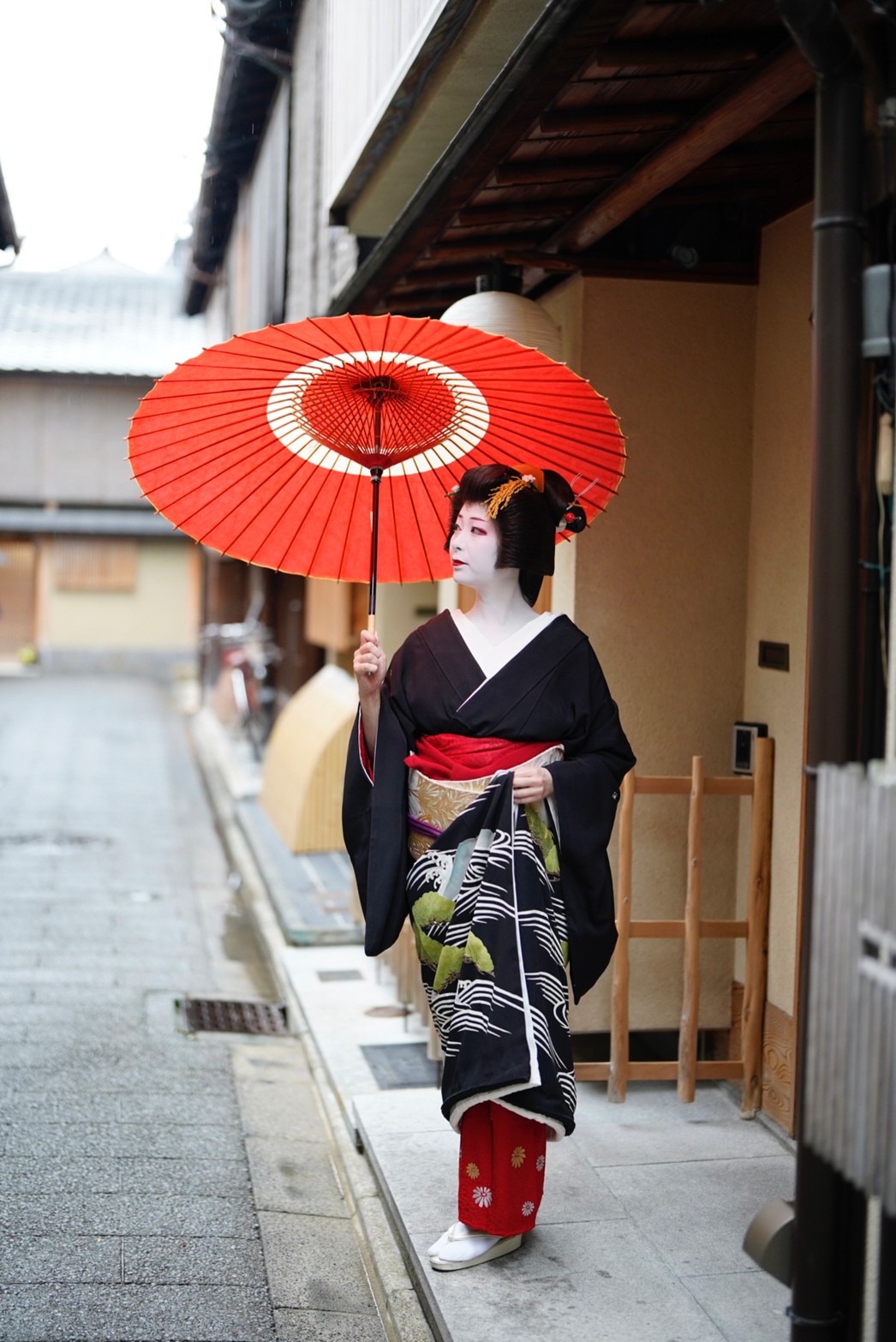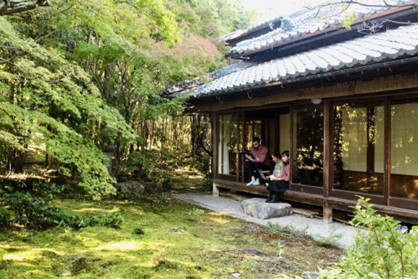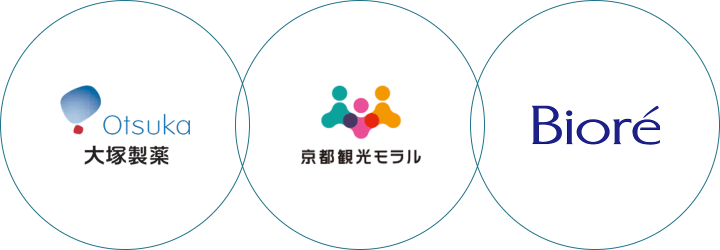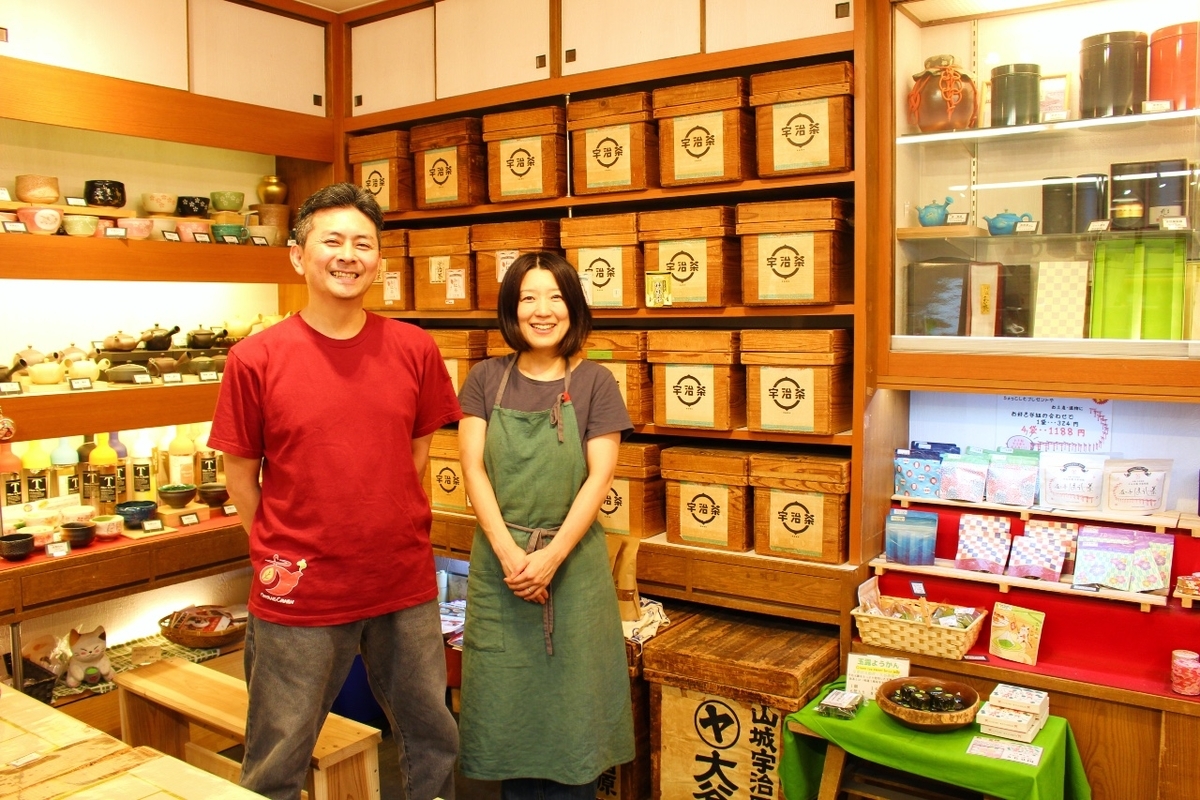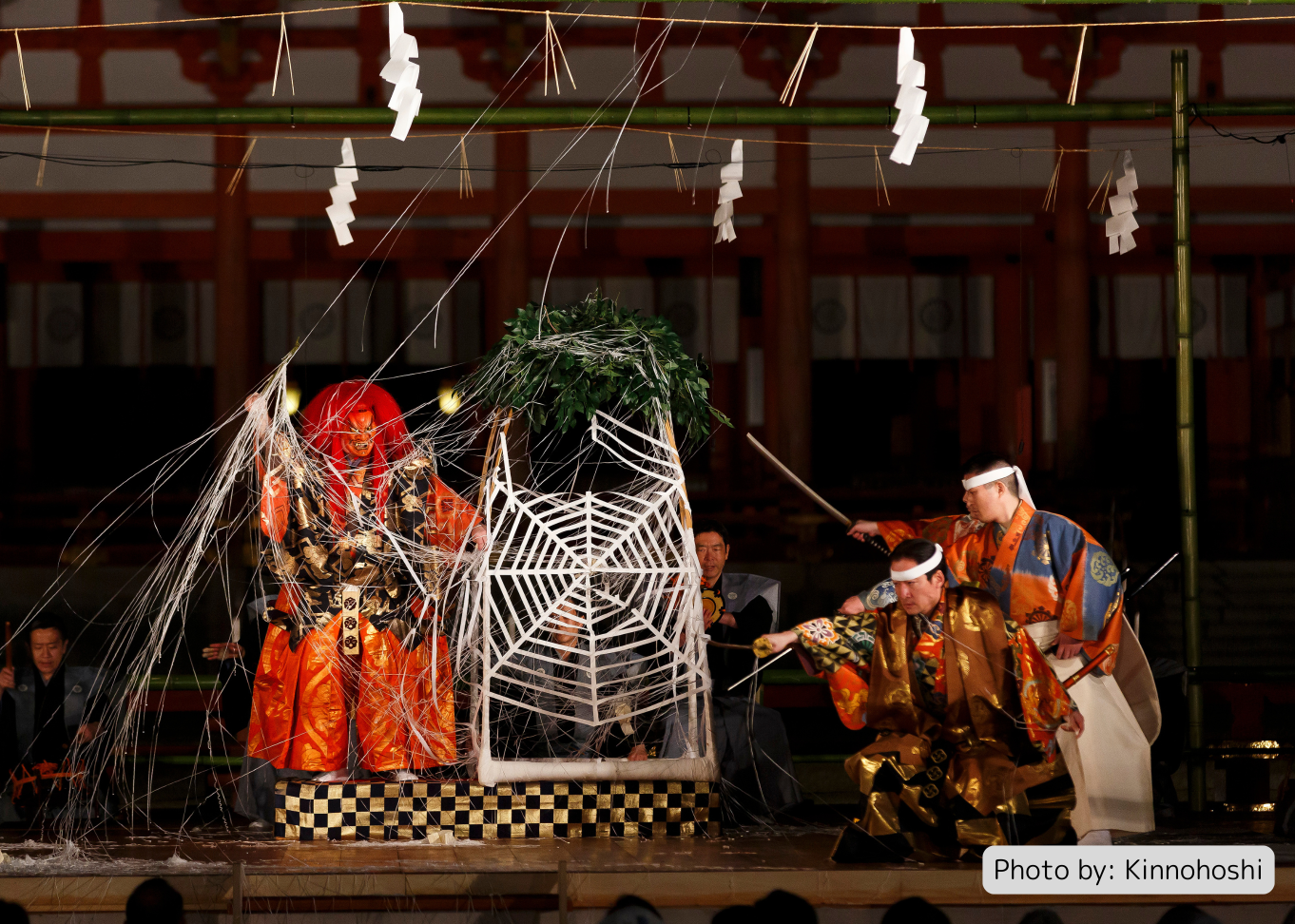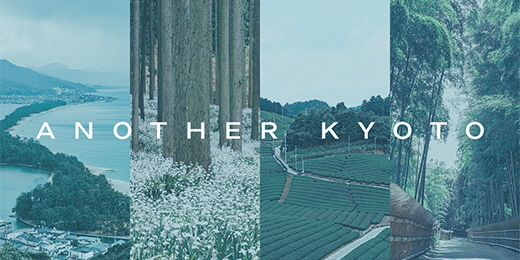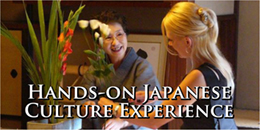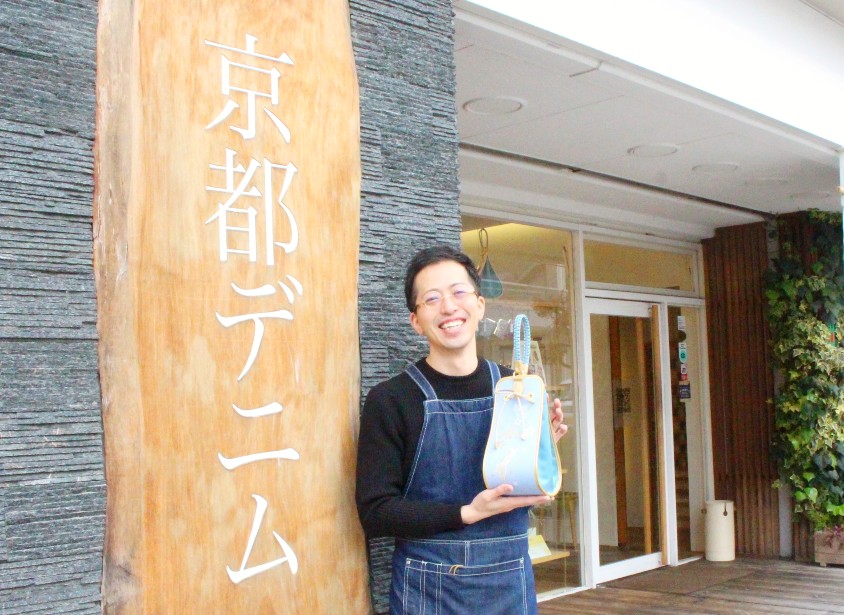
Kazutomo Miyamoto of Kyoto Denim
Kyoto Denim is a denim brand that specializes in producing denim bags with hand-painted Yuzen patterns. As the company enters its 20th year of carrying out activities to pass on traditional techniques to the next generation and to the world, it has also been selected as a “Company Committed to Excellence in Ethical and Sustainable Tourism Business Practices” under the “Kyoto Guidelines for Sustainable Tourism” actively promoted by Kyoto City.
Company Committed to Excellence in Ethical and Sustainable Tourism Business Practices
Preserving techniques that have been passed down and enhancing their value
Located about a 5-minute walk from Kyoto Station, we were greeted with a smile by Kazutomo Miyamoto, director of Kyoto Denim and well-known as the renowned store manager, behind the denim curtain which hangs facing Shijo-dori Street.
Hand-painted Yuzen is a traditional craft from Kyoto in which patterns are dyed onto silk kimonos, but about 20 years ago, the company developed a technique that made it possible to apply this to denim fabric, and they now manufacture and sell denim bags dyed by hand using the Yuzen dyeing method.
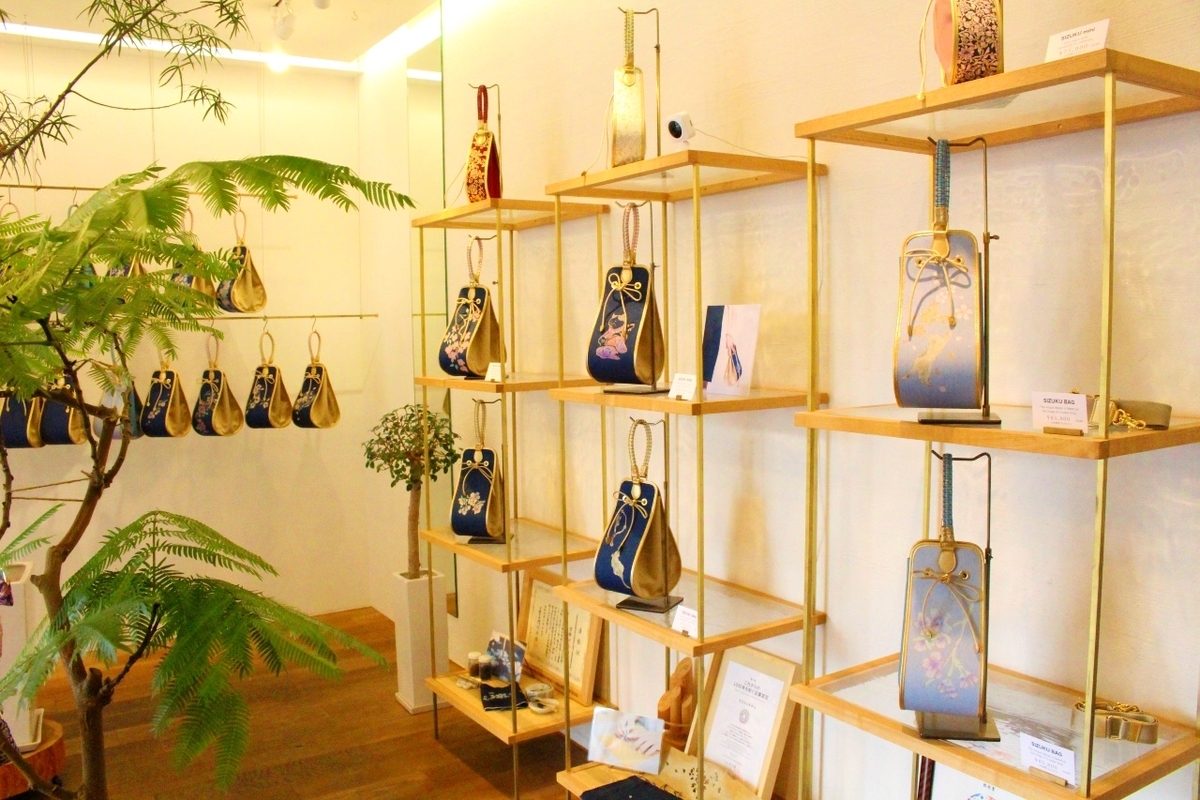
Kyoto Denim was founded by Miyamoto and Toyoaki Kuwayama, who attended the same university and is now the company’s president. Miyamoto started helping out on a part-time basis when Kuwayama, who was born into a family that had been in the kimono business since the middle of the Edo period, decided to start a new kimono retail business.
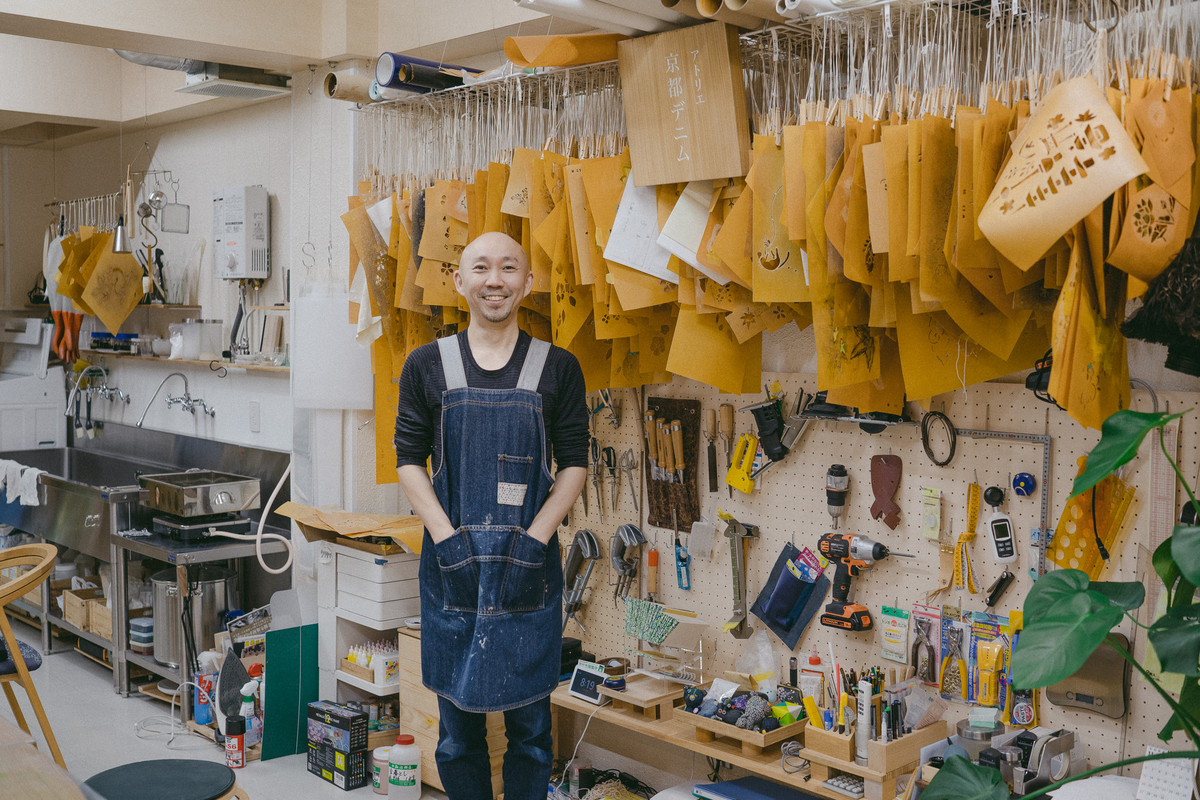
Toyoaki Kuwayama, president of Kyoto Denim – Photo courtesy of Kyoto Denim
As the number of people who can properly put on a kimono has decreased, and with the decline of the traditional Japanese style of dress, which often tends to be regarded as too stiff and formal, the company has been exploring new possibilities for kimono and experimenting with new ideas. Unable to forget the excitement and impact he felt when he first encountered the handiwork of artisans in Kyoto, Miyamoto continued to search for ways to convey the appeal of hand-painted Yuzen. He recalls that he arrived at the idea of applying the technique of Kyo Yuzen to jeans, an item with universal appeal regardless of age or gender.
Struggles with working with denim fabric and the sense of attachment realized through “returning to one's roots”

Photo courtesy of Kyoto Denim
However, unlike traditional silk, it was a constant struggle to get the color to adhere to the cotton denim fabric. With only a few craftsmen willing to cooperate, it took three years to develop the fabric. There were also many factories in Hiroshima and Okayama, areas known for their denim production, that were cautious about entering into new business relationships with two relatively young newcomers. Although it took some time to gain the industry’s understanding of the idea of applying Yuzen dyeing to a casual garment like jeans, in 2007, with the cooperation of craftsmen and factories who sympathized with their aspirations, they were finally able to announce a brand centered around hand-painted Yuzen-dyed jeans. Since then, the company’s sales have increased and its name has gradually become more well-known.
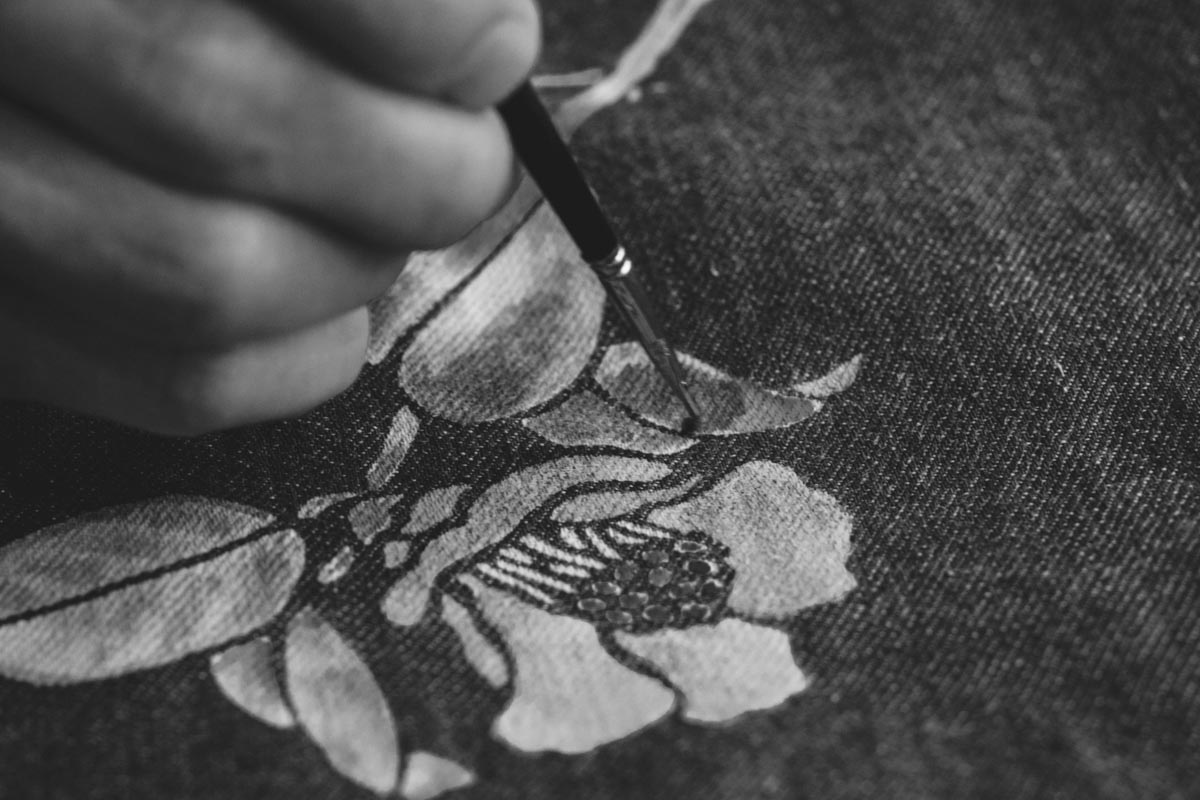
Photo courtesy of Kyoto Denim
The pandemic became a turning point. As people’s lifestyles suddenly and drastically changed, customers stopped coming to the store, so the company was faced with the situation of being unable to provide face-to-face customer service. With that in mind, they decided to use this as an opportunity to think about the next evolution of the brand, and decided to make denim bags, a fashion item that had sold well online, the key product of the brand.
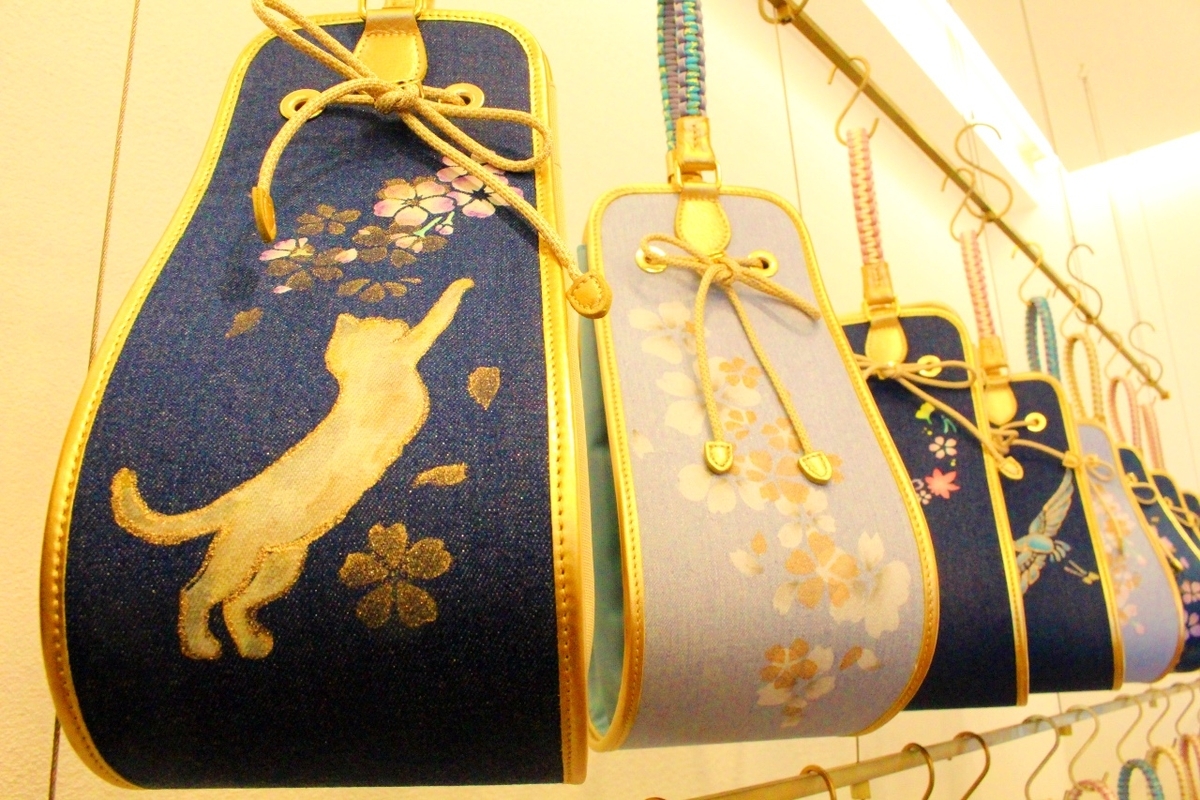
What was important in taking this new direction was a belief in “returning to one’s roots”. As the brand grew, there was a pressing need to develop variations and increase the production volume of the jeans that were the company’s main product, but Miyamoto says, “We didn’t want to just be successful as an apparel manufacturer. We felt we had to get back to the basics of our company’s activities, which is to convey the appeal of hand-painted Yuzen dyeing.”
Fukuromono (handbags) is a long-standing genre of traditional Kyoto textiles. Inspired by the customs unique to Kyoto, Kyoto Denim decided to make bags that could be passed down from one generation to the next with love and affection. As a result, they released the “SIZUKU BAG,” which can be paired with casual fashion and Japanese-style attire and worn by people of all ages.
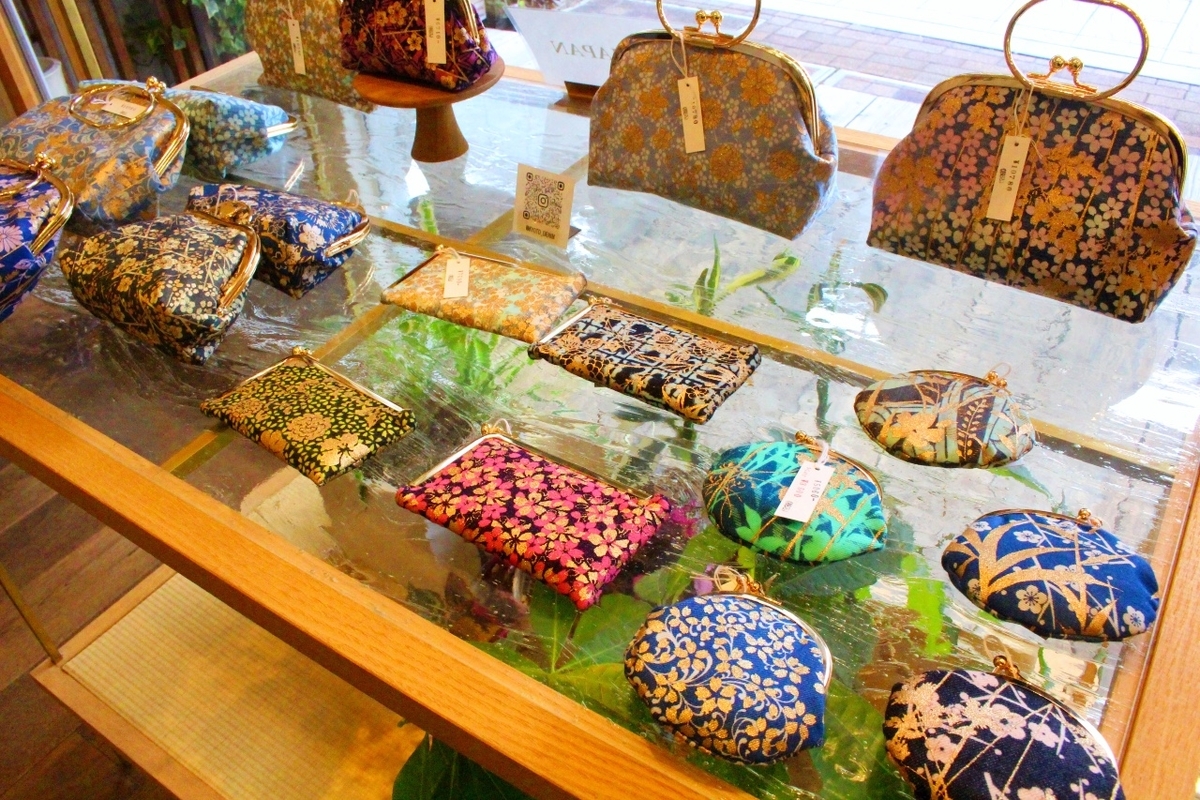
Interacting with customers as a Kyoto Hospitality Concierge
Another area that the company is focusing on from the perspective of “cultivating a sense of attachment” is providing a service in which customers can bring in their own jeans to be dyed using the Yuzen dyeing technique. All types of jeans, whether made by the company or elsewhere, are accepted for patterning. “We hope people will enjoy our personally tailored handiwork, in the same way that the culture of Kyoto is deeply rooted and passed down from generation to generation,” says Miyamoto. With the end of the pandemic, they feel that they have gained experience in interacting with customers online and in expanding their operations, and they are also feeling confident about the potential of the pattern-imprinting business.
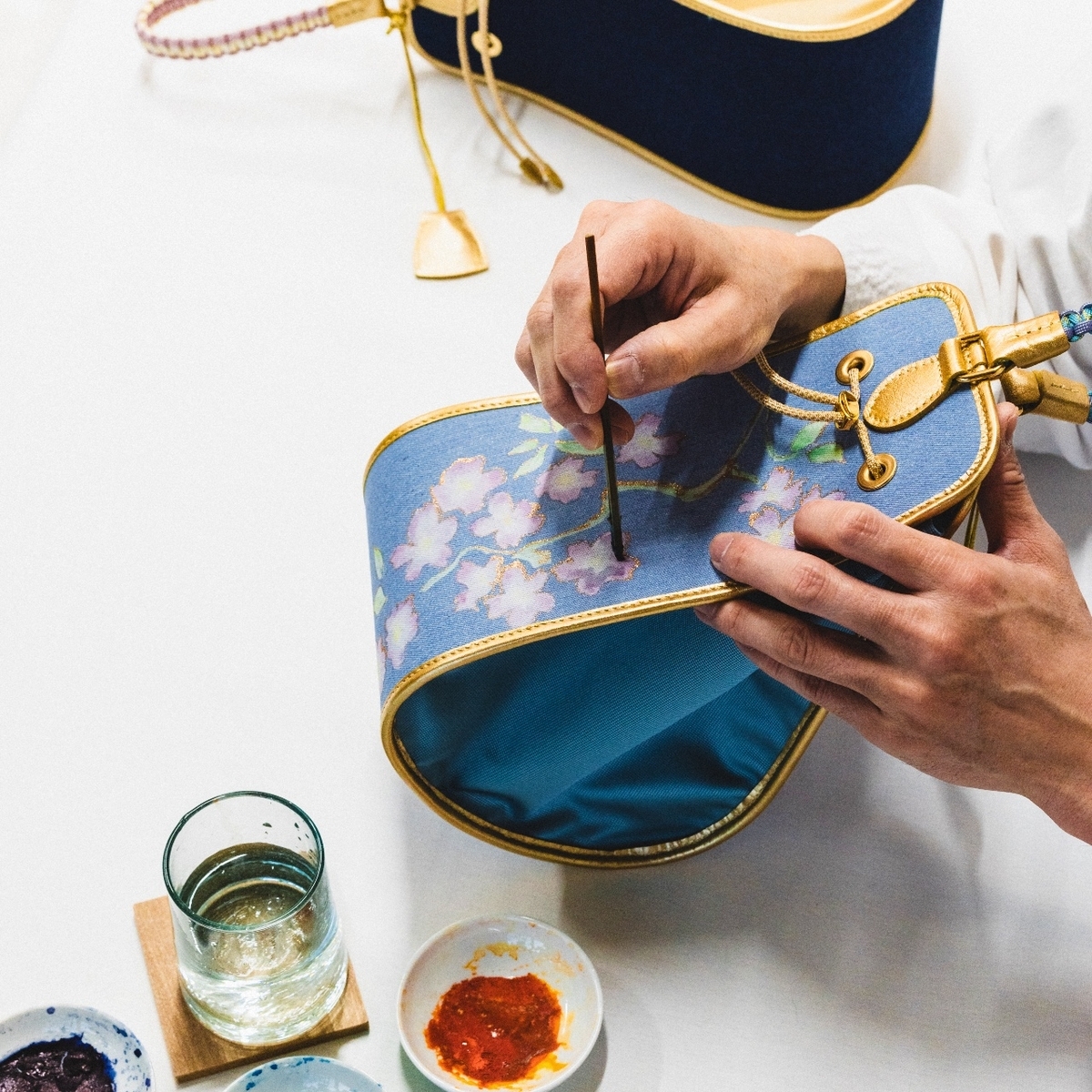
Photo courtesy of Kyoto Denim
As the business enters its 20th year, there has been an increase in the number of orders for repairs of products the company has been selling over the years. They have also received requests from customers who want to repair their jeans so that they can continue to use them for a long time or remake heirlooms that belonged to their ancestors, and these requests are proof that Kyoto Denim is truly appreciated for its hand-crafted quality, rather than simply being a company that relies on mass production and mass consumption.
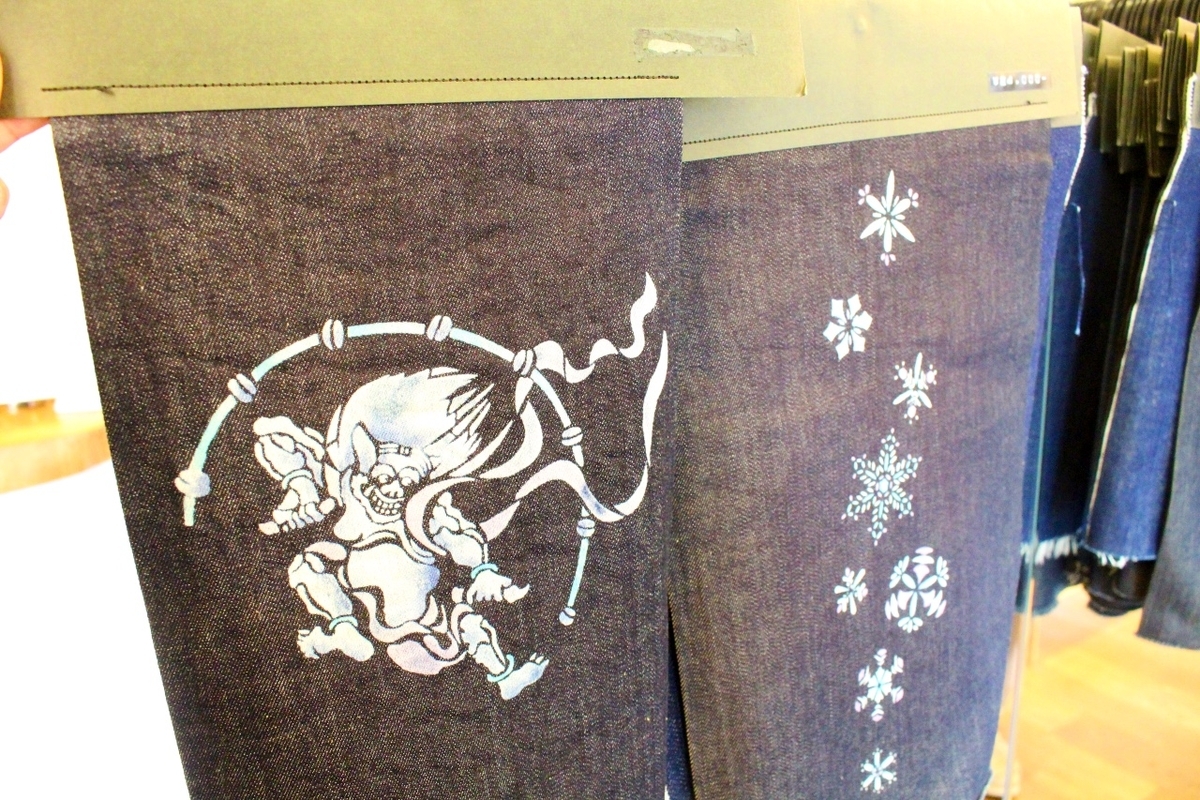
Another thing that Miyamoto has valued over the years is maintaining strong relationships with customers, and he says that this is one of the reasons why they chose the area around Kyoto Station as the location for their store. They have continued to disseminate information about their brand from their base, which is easy to get to even from far away, while also providing tourists with information not only about their company but also about the many attractions of Kyoto to help them appreciate the city even more.
In particular, Miyamoto has also been appointed as a Kyoto Hospitality Concierge, and since the store first opened, he has continued to provide information on hidden tourist spots, tips on traveling off the beaten track, and seasonal attractions. These days, he uses social media to share information about events, traffic congestion, train schedules, and other local conditions in advance. He also actively makes efforts to enhance the experiences of visitors to Kyoto, such as by suggesting sightseeing routes that match the schedules of customers who are visiting from afar.
Cherishing connections between people through social media
“Deniguma,” a small handmade stuffed toy made from denim scraps, was first conceived 17 years ago and remains a popular mascot of Kyoto Denim. It has become a symbol of the brand, representing the importance of preserving fabrics that would otherwise be discarded and passing on the art of handiwork. In 2023, the company launched a project to make effective use of leftover denim scraps in collaboration with students from Kyoto City University of Arts who supported the company’s philosophy embodied in these stuffed animals. They also welcome factory tours for groups of students so that they can experience the process of handicrafts up close.
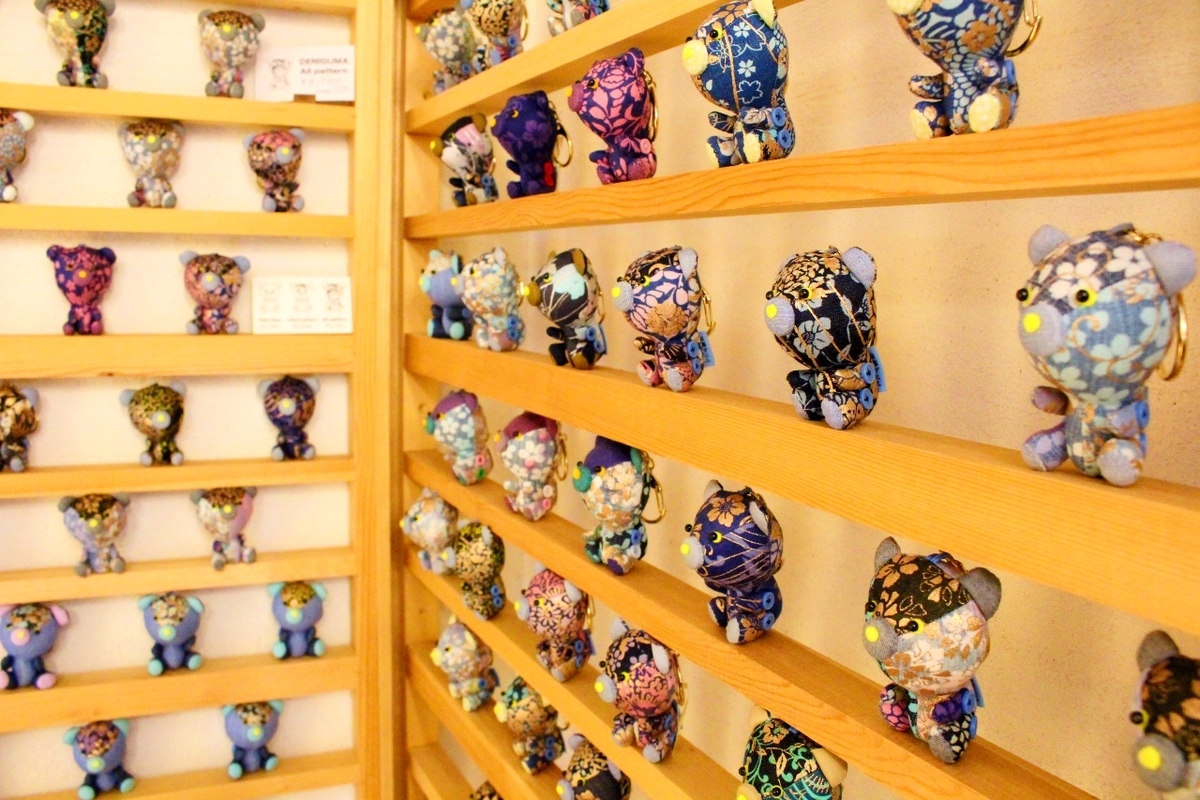
Deniguma stuffed toys
They are also actively continuing to interact with the local community, and since the store first opened, they have been cleaning up the area around the store, and they have also prepared storage batteries that they installed in case of an emergency for use by the local community whenever necessary.
In addition to providing tourists with information about sightseeing, they also distribute leaflets about proper sightseeing etiquette and hold training sessions for employees about Kyoto sightseeing morality to ensure that everyone can enjoy the city of Kyoto safely and comfortably.
When it comes to using social media, it seems that these days, it’s not just the store that is putting out information, but also customers who are voluntarily sharing information. “We’re seeing more and more customers who visit our store spreading the word about us on their own. We’re very grateful for that,” says Miyamoto. As a result of these posts, their circle of interaction continues to grow day by day. The information that is disseminated can also lead to new business opportunities in unexpected ways, and through Kyoto Denim, the beauty of hand-painted Yuzen is spreading from person to person and around the world.
■Related links
